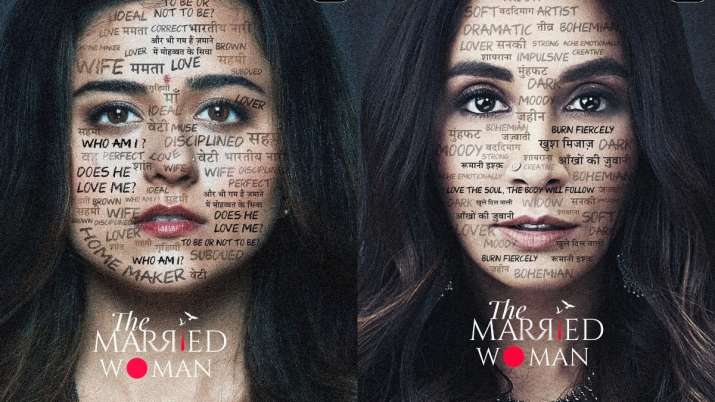OTT becomes voice of female driven content

The Married Woman is based on a novel of the same name written by Manju Kapur (Image Source: Alt Balaji)
While movies like Padmaavat and Lipstick Under My Burkha faced a lot of trouble during their production as well as theatrical release, online streaming services have provided filmmakers with a new platform to deliver female driven content to the audience. Most of these manage to get through without the ruckus that some films have attracted in the past. Many of these online films and series have been applauded by the audience owing to the noteworthy performances and unconventional content.
Here is a list of five women centric films and series released this year.
Pagglait
Recently released on Netflix, Sanya Malhotra starrer, Pagglait centres around the life a young woman, widowed after just five months of marriage. The plot of the film revolves around the widow’s journey of dealing with the inability to grieve over her husband’s sudden death and breaking free from the shackles of patriarchal norms imposed upon her. The film challenges the conventional way of grieving and how a woman is told on every step about how to lead her own life. It follows the journey of Sandhya (Sanya Malhotra) of realising her potential and taking control of her life.
It also stars senior actors like Ashutosh Rana, Sheeba Chaddha and Rajesh Tailang in supporting roles.
The Married Woman
The Married Woman is a romance drama premiered on Alt Balaji and Zee5 on March 8,2021. The web series, based on the novel of the same name written by Manju Kapur, stars Riddhi Dogra and Monica Dogra, not related to each other, in lead roles. The plot centres around Astha, played by Riddhi Dogra, a dutiful wife and mother stuck in a loveless marriage who sets out on the path of self discovery after falling for an independent and free-spirited artist Peeplika Khan portrayed by Monica Dogra .
Set in 1992, the series focuses on the idea of love beyond gender and tries to highlight issues like communal violence and conditioning of women to assume the roles of a model wife and mother sacrificing their own aspirations in the process.
Bombay Begums
Bombay Begums, currently streaming on Netflix, is a series which follows the lives of five women trying to hustle through different walks of life in a predominantly patriarchal society. The six-episode drama attempts to tackle various under-discussed issues like gender identity, boardroom politics, menopause, sexual harassment at workplace and motherhood.
The characters of the series despite being fierce and strong-willed are also seen making questionable decisions motivated by self-interest which brings a novel perspective to the otherwise redundant portrayal of women in cinema.
The series stars acclaimed actors like Pooja Bhat, Shahana Goswami, Plabita Borthakur, Amruta Subhash and Aadhya Anand.
Tribhanga – Tedhi Medhi Crazy
Currently streaming on Netflix, Kajol-starrer Tribhanga explores the complex dynamic of mothers and daughters. Kajol plays the role of a famous actor and Odissi dancer Anu who shares a dysfunctional relationship with her mother Nayan, played by Tanvi Azmi. The movie also focuses on Anu’s daughter Masha (Mithila Palkar). The title of the film is a metaphor, Anu uses Odissi poses to describe the personalities of the three lead characters, Nayan as abhang (the slightly off centre pose), Masha as sama-bhang (the most balanced) and herself as Tribhanga (the pose with three angles).
The film portrays that mothers, like every other human being, falter and make mistakes and therefore should not be judged too harshly.
The Great Indian Kitchen
The Malayalam language film, that premiered recently on Amazon Prime Video, beautifully depicts the grim reality of patriarchal Indian households.
The producers say characters of the film have no names as they represent everyone. The movie brings to light the deep-rooted patriarchal ideas in ordinary household chores. Scenes like woman cleaning the mess created by man after cooking a meal and yet applauding himself for relieving the burden of his wife or the father-in-law relaxing while waiting for the woman of the house to put toothpaste on his toothbrush are not merely fiction but are a glimpse of reality.









